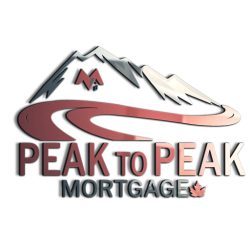Basement suites, or secondary suites, are a great way to help manage the costs associated with home ownership. They can also help you qualify for your mortgage. There are some key points that should be noted if you are looking at homes with basement suites.
From a lending perspective, in order for a bank to recognize the suite for use of rental income, the suite must have it’s own separate entrance, a full kitchen, bathroom, and a bedroom. A secondary suite can be a basement suite, laneway house, or carriage home.
Legal versus unauthorized.
A legal, or authorized suite is one that complies with all city bylaws, zoning, building permit requirements, and all municipal guidelines. For a sample of what the guidelines can look like, here is the information link from the City of Vancouver, Create or Legalize a Secondary Suite. Depending on the municipality, a legal suite may also be required to have separate utility billing.
An unauthorized suite is one that does not meet all of the requirements of a legal suite. An example of building code particulars that may not be met include, but are not limited to: guidelines for firewalls or fire blocking, sprinkler systems, smoke detectors, and door heights. If a secondary suite does not comply with zoning and bylaw requirements, or has not been registered with the City, it will be considered “unauthorized.”
Are secondary suites covered under the Residential Tenancy Act? From the Tenant Resource & Advisory Centre, generally speaking, the Residential Tenancy Act applies to secondary suites – even unauthorized ones.
How a suite can help you with your mortgage approval.
Most lenders will recognize potential rental income from a suite whether it is legal or unauthorized. However, if you are obtaining an insured mortgage and you must go through CMHC to secure the approval, it is a CMHC requirement that the suite be legal in order to use the rental income to help you qualify. If the suite is not legal, Sagen and Canada Guaranty will still consider the rental income from the suite in your debt service calculations, depending on the strength of your overall application.
How much rental income that is used to help you qualify, is a different story. Each lender has their own policy regarding how much rental income they will use: (a) as a percentage, and (b) if it is calculated as an add-back to your income or as an off-set to the mortgage payment. A conservative use of rental income that is considered a minimum in the lending industry is 50% of the rental income added to your earned income.
Lenders will not use income from roommates in the qualifying ratios.
Paperwork.
The paperwork required to establish potential rental income can include: a signed lease agreement or an appraiser’s market rent report.
Accounting.
Speak with an accounting professional regarding declaring the rental income on your tax return and claiming the eligible expenses. You will want to make sure you claim all of your allowable deductions. Click here for an article from Rentals.ca that discusses 9 tax deductions that landlords don’t claim but should.
Insurance.
Make sure you let your home insurance company know that you have a suite that is being rented out. Non disclosure could mean no coverage. You should have adequate insurance in place to cover yourself as the Homeowner, and your tenant should also have tenant insurance.
Useful Links.
BC Government Residential Tenancies
CRA Publication on Rental Income for 2018
CMHC Landlord/Tenant Responsibilities
With our continuous changes in the lending environment, it can be helpful to arrange a mortgage pre-approval in advance of shopping for your perfect home. If buying a home with a suite is something that you are hoping to do, let your broker know so they can factor in the potential rental income in your qualifying ratios.
If you have any questions, we are here to help! Contact us here.

